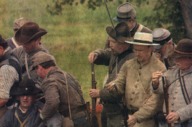Bellmead

McLennan County is in east central Texas, 230 miles inland from the Gulf of Mexico, bordered by Hill, Limestone, Falls, Bell, Coryell, and Bosque counties. Waco, the county seat, is on the Brazos River at the intersection of Interstate Highway 35 and U.S Highway 84, ninety miles south of Dallas and 100 miles north of Austin. The county's center lies three miles west of Waco at 31?33' north latitude and 97?12' west longitude. Situated partially in the Grand Prairie and partially in the Blackland Prairie, McLennan County comprises 1,031 square miles of flat to rolling terrain at elevations ranging from 400 to 850 feet above sea level. The land in the western section of the county has varied terrain surfaced by shallow, stony soils that support mountain cedar and oak. The eastern section is generally low rolling to flat, with black, waxy soils made up of clay and sand loams that support mesquite, scrub brush, and grasses. The county is bisected from southwest to northeast by the Balcones Fault, and the rolling prairie along the fault line is broken by locally steep slopes. The county lies entirely within the Brazos River basin and is drained primarily by the South and Middle Bosque rivers in the west and by the Tehuacana and Aquilla creeks in the east; the Brazos River crosses the county from northwest to southeast. Wildlife in the area includes deer, coyotes, rabbits, bobcats, beaver, opossums, fox, raccoon, mink, skunks, and squirrels, as well as assorted birds, fish, and reptiles; prior to extensive settlement, the county's wildlife also included antelope, buffalo, bear, and wild hogs. Among the county's mineral resources are limestone, sand, gravel, oil, and gas. The climate is subtropical with an average minimum temperature of 37? F in January and an average high temperature of 97? F in July. The growing season averages 253 days annually, and the rainfall averages thirty-three inches.
